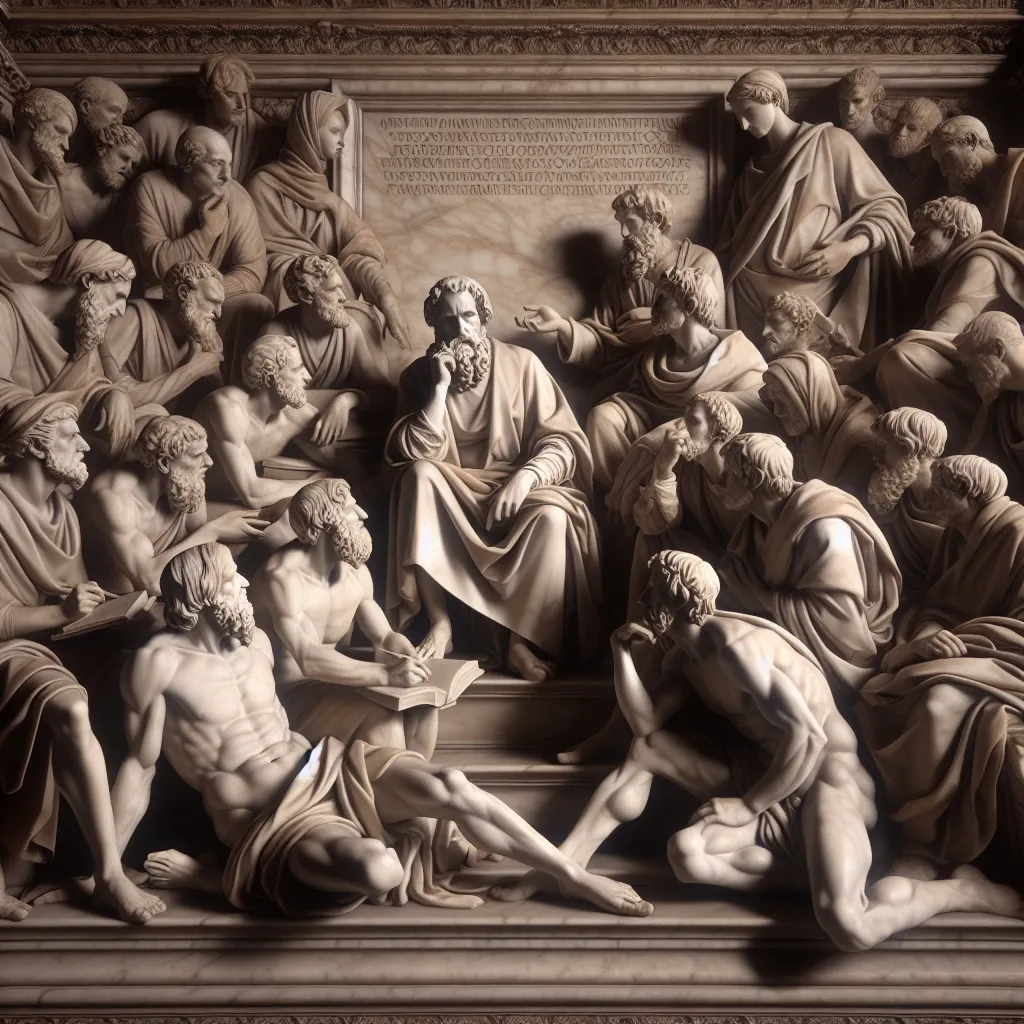
- Published on
- Authors

- Name
- You
Crowleys Influence on New Religious Movements
Aleister Crowley, often branded as "The Wickedest Man in the World," is a figure whose impact on modern spirituality cannot be understated. His pioneering work in magick, mysticism, and alternative religion has left an indelible mark on numerous new religious movements (NRMs) long after his passing in 1947. To understand Crowleys profound influence on contemporary spiritual paths, we must delve into his vast body of work, his core teachings, and the organizations and ideologies that evolved from or were inspired by his visionary ideas.
The Foundation of Thelema
Crowleys magnum opus, The Book of the Law (Liber AL vel Legis), forms the cornerstone of Thelema, a spiritual philosophy that profoundly impacted new spiritual movements. The central dictum of Thelema, "Do what thou wilt shall be the whole of the Law," emphasizes individuality and personal will, encouraging adherents to seek their true purpose and live in accordance with their innermost nature. This radical emphasis on personal spiritual authority challenged established religious hierarchies and resonated with those seeking a more individualized spiritual path.
Core Concepts of Thelema
| Concept | Description |
|---|---|
| True Will | The inherent purpose and unique path of an individual. Crowley taught that discovering and manifesting True Will is the highest spiritual calling. |
| The Holy Guardian Angel | A higher aspect of the self, akin to a spiritual guide, that assists individuals in discovering their True Will. |
| Magick | Defined by Crowley as "the Science and Art of causing Change to occur in conformity with Will," it blends ritual, psychology, and esoteric principles. |
| The Aeon of Horus | Crowley declared the advent of this new era, characterized by the recognition of the individual's will and a departure from the old Aeon of Osiris. |
Influence on Contemporary Spiritual Paths
Wicca and Neopaganism
Gerald Gardner, often referred to as the father of modern Wicca, was significantly influenced by Crowley. Although controversial, it is believed that Crowley had a direct hand in drafting parts of the Wiccan liturgy and ritual structure. Wicca's eclectic nature, ceremonial aspects, and emphasis on the divine within resonate with Crowleys Thelemic principles.
Chaos Magick
Born out of dissatisfaction with traditional ceremonial magick, Chaos Magick emerged in the 1970s and 1980s, emphasizing the pragmatic and experimental aspects of magick. Peter Carroll and Ray Sherwin, prominent figures in this movement, acknowledged Crowleys influence. Chaos Magicians often adopt the Thelemic idea of personal sovereignty and subjective reality but adapt and mutate practices to suit individual needs and contemporary contexts.
The Church of Satan and LaVeyan Satanism
Anton LaVey's Church of Satan, established in 1966, exhibits numerous parallels with Crowleys Thelemic principles. LaVey adopted Crowleys rejection of conventional morality and emphasis on individualism and self-empowerment. Though LaVeyan Satanism diverges in its atheistic stance, the performative aspects of its rituals and its critique of societal norms bear Crowleys imprint.
The Ongoing Legacy
The continuing relevance of Crowleys ideas can be seen in the rise of digital spirituality and online esoteric communities. Web platforms have allowed for the proliferation of Crowleys works, enabling a global audience to engage with and adapt Thelemic principles. Furthermore, the DIY ethos of online magickal groups echoes Crowleys call to "rebuild the temple of the spirit" according to individual vision.
Future Implications
As technology and spirituality increasingly intertwine, Crowleys advocacy for personal enlightenment through magick and self-exploration may grow even more pertinent. The democratization of esoteric knowledge aligns with Thelemic ideals, potentially heralding a new wave of spiritual individualism and innovative religious expression.
Conclusion
Aleister Crowleys revolutionary ideas continue to shape and inspire modern religious and spiritual landscapes. His emphasis on the discovery and enactment of True Will, along with his innovative approaches to magick and ritual, have profoundly influenced diverse new religious movements and alternative spiritual paths. As society evolves, Crowleys legacy endures, challenging individuals to explore the mysterious depths of their existence and the magickal potential within.
In a world increasingly open to spiritual exploration, Crowleys influence serves as both a historical touchstone and a future pathway for seekers of esoteric wisdom.
